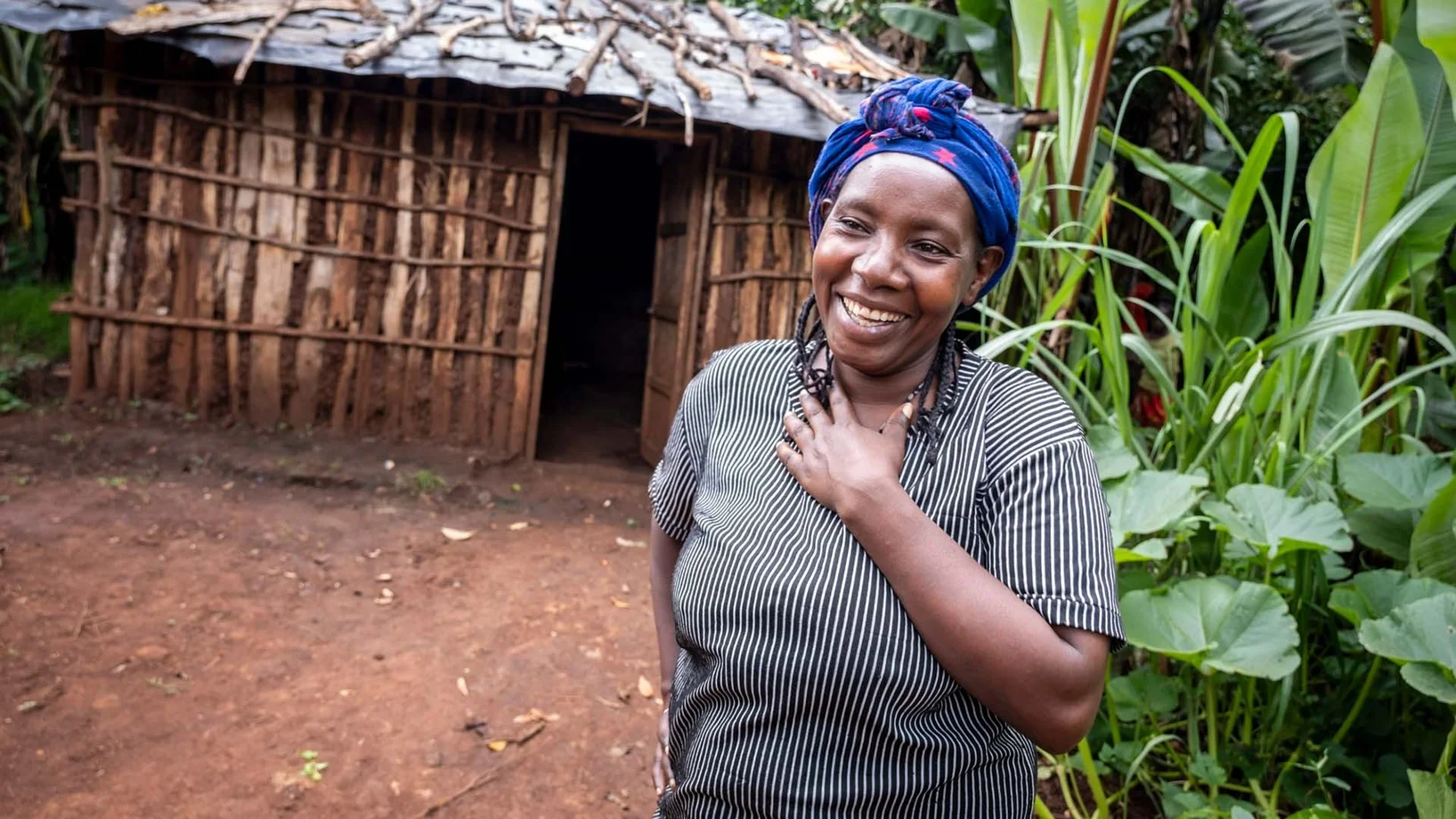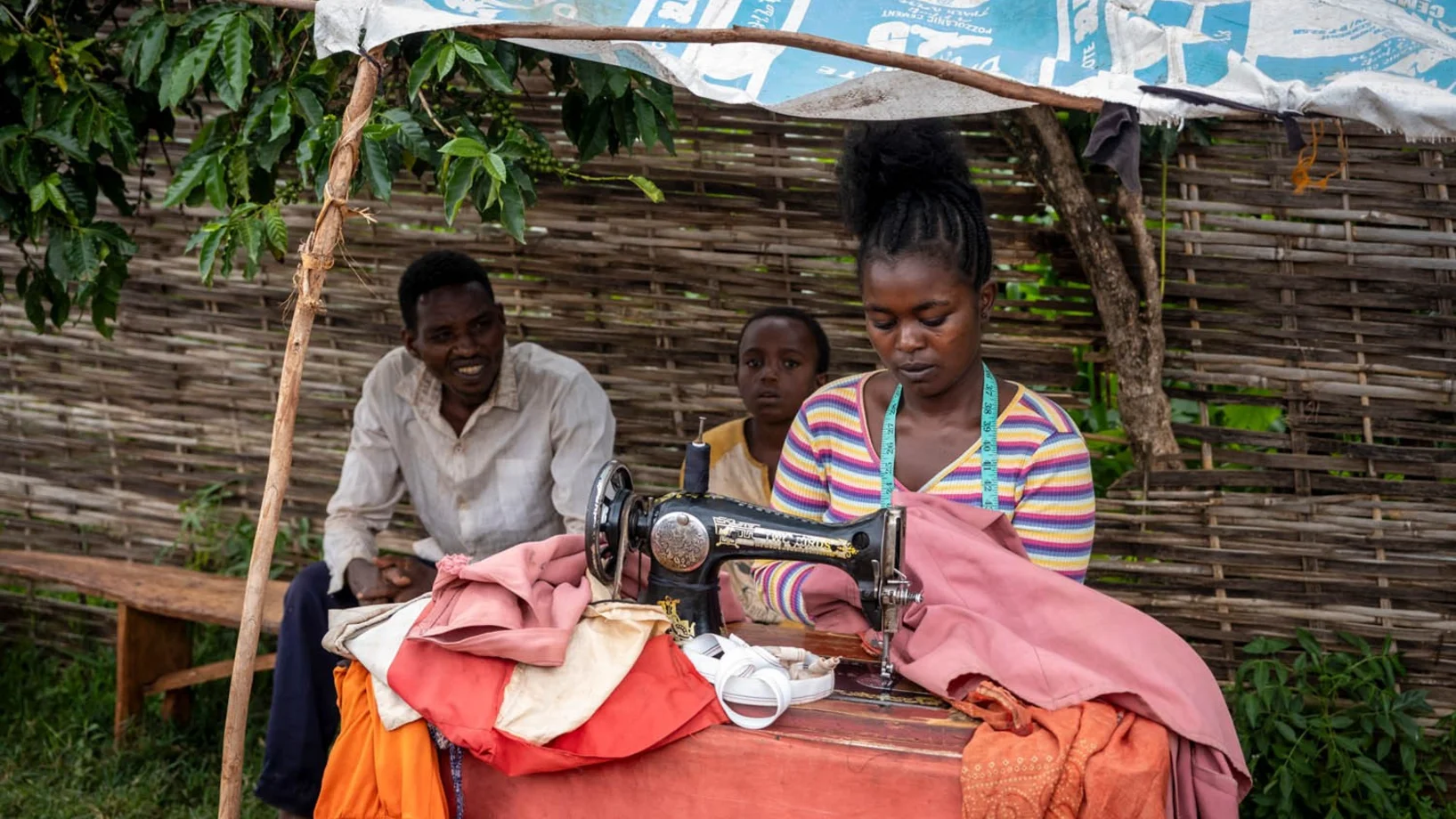Work begins at the grass roots
Work in the new Raphe project area has officially begun with an opening workshop. In the villages, "help for self-development" is underway. Our experts are currently identifying the most needy families and their potential in the rural district in southern Ethiopia and are beginning their training.
Raphe is about the same size as the canton of Appenzell Innerrhoden, but has six times as many inhabitants. 98,000 people live here without a secure livelihood. Only a few households have access to clean water. Children in particular get sick. Families own only tiny plots of land, the harvests are insufficient - nine out of ten families suffer from food shortages for many months of the year: a comprehensive baseline study documented the overwhelming poverty in the district.

On the basis of this data, we are starting our new three-year project to enable 3600 day labourer and smallholder families from seven communities to lead a decent life in their homeland.
Menschen für Menschen is implementing the project with the Ethiopian NGO Ethio Wetlands and Natural Resources Association (EWNRA), a long-standing partner organization. At the opening workshop in the nearby town of Dilla, its director Afework Hailu recalled the successful project that we have jointly implemented in the Abaya and Gelana districts over the past nine years - and a key success factor, namely the commitment of both small farmers and local authorities.
Project coordinator Dr. Martin Grunder reported that the funds for the project did not come from government donors, but from committed private donors who are willing to donate their hard-earned money for a good cause. Getachew Zewdu, Country Director of Menschen für Menschen, explained the organization's approach: Menschen für Menschen focuses on empowering families to create their own sources of income. The aim is to provide them with the long-term knowledge and skills they need to earn their own living. Getachew Zewdu pledged to work closely with the EWNRA team to support and monitor the progress of the numerous project components.

Ato Yohannes, head of the district administration, praised "the commitment to realize such a comprehensive project in a remote and often forgotten district". He called on the administration and all those involved to give their best for the success of the project.
Shibeshi Beyene, the project coordinator from EWNRA, presented the various measures. They are based on the experiences in the districts of Abaya and Gelana. Our local development experts are currently selecting the families. In addition to their particular poverty, criteria include recognizable development potential. For example, in the first year, 100 motivated small farmers with land will receive particularly efficient maize seeds on a microcredit basis. 40 innovative farmers will be introduced to the cultivation of potatoes, which are not yet widespread in the district. Twelve families who have previous knowledge in beekeeping are able to produce more honey with training and modern beehives.
The intensive use of the soil in Raphe has led to erosion and falling yields. That is why we are setting up a plant nursery in this first year of the project. We are growing a total of 90,000 tree seedlings and giving them to the farmers. The roots of the trees, planted on ravines and slopes, stabilize the soil.

The project repairs wells, builds 15 new spring taps and trains water committees. This will give 4,500 people permanent access to drinking water. Five of these communal water points are to be built in the first year.
People in Raphe have no access to financial services. The people are to organize themselves into savings and credit cooperatives (SACCOs). The offer is aimed particularly at women in order to awaken their economic potential. This year, 100 women in each of seven communities will organize themselves into these groups.

A high birth rate exacerbates the spiral of poverty. Women often have no opportunity to decide for themselves how many children they have. The project provides information about family planning and makes contraceptives available. In the first year alone, 280 women and men will take part in awareness-raising events. Above all, we are training twelve multipliers in each community who will spread their knowledge about family planning in their communities.








